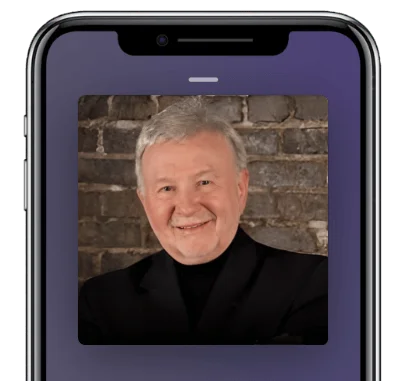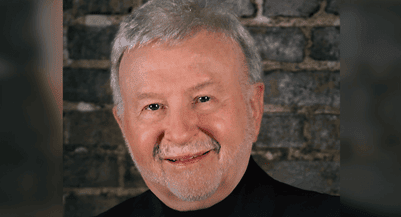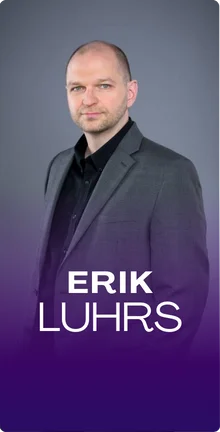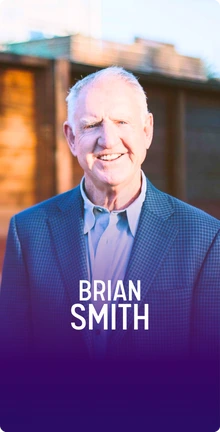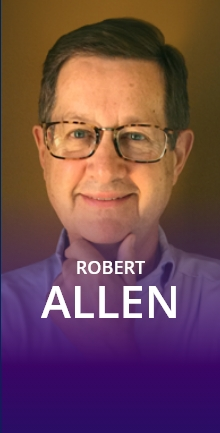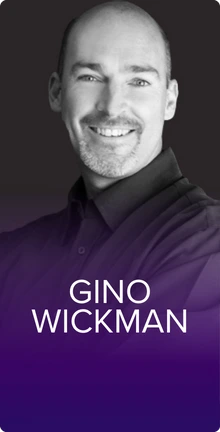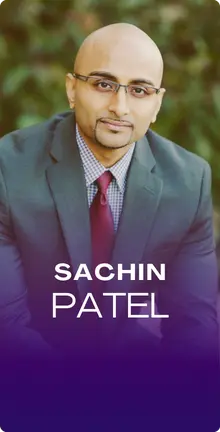In this Episode
- [00:40]Stephan introduces Don Hutson, a motivational speaker, bestselling author, a founding board member, and former President of the National Speakers Association.
- [05:26]Don tells an interesting story about how he got a job working for Dick Gardner, which was his first training in giving great speeches.
- [11:26]Don shares how he has pivoted from his speaking gigs during this trying time.
- [16:15]A great tip on how to solidify your vision and come up with a great title for your book.
- [21:53]Don talks about his success formula, (Vision + Skills + Discipline) x Passion = Outcome.
- [26:53]Don explains Ken Blanchard’s analogy of writing different books simultaneously as to why he is also writing three books at the same time.
- [31:37]Don tells the story of how they formulated the book, The One-Minute Negotiator.
- [36:38]The various impressive awards Don received over the years of serving and giving back to people unselfishly.
- [41:41]Don talks about Dr. Kenneth McFarland as the greatest speaker of all time and one of his powerful inspirations.
- [44:23]Visit Don Hutson’s website at donhutson.com to check out the Sales Excelerator Challenge and to learn more about him.
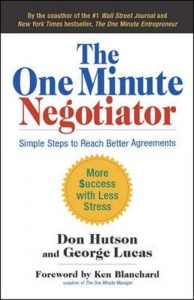
Don, it’s so great to have you on the show.
My pleasure, Stephan, glad to be with you.
First of all, let’s start by sharing the story of how you got started in the whole professional speaking world. Because many folks who are into speaking start with Toastmasters, or they will just learn from people who are not skilled and in the space of public speaking. Maybe it’s a debate class, maybe it’s a local Toastmasters chapter, and they’re all trying to learn from each other, and you went a very professional route. How did all this start?
It was a long time ago, Stephan. When I got out of college, I had received a sales major, which at that time at the University of Memphis was the only sales major in the world. And because of that sales major, there was a sales training firm that recruited there. And I was hired by a guy named Dick Gardner, who had a company called NACE. They were out of Kansas City, Missouri. And I went to work for him straight commission selling, selling enrollments in seminars. It was just the fortuitous opportunity that came about because Dick Gardner spoke to our class, and he was promoting his big seminar that was coming up. And I bought a half-price student ticket for his seminar. And I went to that seminar, and they had Larry Wilson, who was terrific, and then Dr. Kenneth McFarland spoke. I got chills like a half dozen times during his speech. It was a life-changer for me. And I’ve since heard that goosebumps don’t lie.
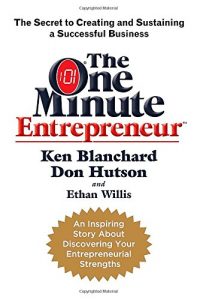
Well, I took action. At the break in the seminar, I went out to the desk in the lobby, and I found Dick Gardner, and I said, “Mr. Gardner, my name is Don Hutson. I was in Dr. Tunning’s sales class you spoke to a few weeks ago. This seminar is fantastic. I graduated six weeks ago, and I want to go to work for you.” He said, “Can you make me breakfast at 7 am?” I said, “Yes, sir. I can,” and I did. By nine-thirty, he had hired me. I worked for Dick for a year and a half, almost two years. And then I started my own company, changed a few things around but doing a similar thing. And that went well. After a period of about three and a half to four years, I’d gotten pretty good. Now, in the beginning, I was scared to death and starving and incompetent. And I got a lot of good training then I got pretty good after a while, and people started asking me to speak for a fee at their company meetings. And then, unfortunately, it was two decades later, but I also became an author. I got a slow start on that. I wish I’d moved quicker on it.
Nevertheless, that added a lot to my career momentum, and then I became president of the National Speakers Association and had several other good things that happened to me in the early days that I’m thankful for that added some momentum to my career. So frankly, I’ve been in the right place at the right time for a half-century. You know you hear about people who’re 35 years old and had 12 jobs. I’ve only had one. One full-time job, and it’s changed a bit in complexion over all the years, the decades, but I’m thankful for my career.
Yeah. And you’re working for yourself, and you get to make your own choices about where you speak, and where you don’t and what books you decide to write and so forth.
There’s a lot of freedom there, and that’s a good thing.
But then it all started because you took a job for a year and a half from a mentor who taught you the ropes and kind of got you your big start.
Yeah, and the thing I didn’t tell you is, in that job and working for Dick Gardner, we had to give short speeches to eight or ten to 15 people, small groups. And after a while, I got pretty good at that. But I did 1500 freebie speeches before I ever got paid for one. That’s how I paid my dues for a few years.
Right. But that’s the trial by fire that makes you an amazing speaker instead of just kind of doing it slow and steady, I guess. You just go on full-on. When I started, I was not a good speaker; I just kind of rambled and didn’t have a command of the audience. I didn’t have the confidence. I just got determined to continue doing it over and over and over again until I had the competence. You know, you have conscious incompetence, then you go to unconscious competence.
The market is changing. We need to pivot and innovate, get creative, and still sell our services but on a different platform. Share on XThe goal is you would have become unconsciously competent.
Yes, and there is a path through that. And so I ended up finally consciously competent or even unconsciously, it’s just kind of in my muscle memory now. If somebody tells me, “Hey, I need you to come on stage and entertain a thousand people about online marketing or SEO or e-commerce or the future,” I could do that and not miss a beat. But you know, it’s ideal if I do have a heads up, and I have a prepared PowerPoint deck. But I am able to step into those scenarios where I wouldn’t have an earlier day. So you get better and better as you get on and expose yourself to more audiences, bigger audiences. I’m curious, what’s the biggest audience that you’ve ever spoken to?
Eighteen thousand people at a positive thinking rally. I was on the original speaker staff of the positive thinking rallies that were formed in 1975, along with Paul Harvey, Norman Vincent Peale, Art Linkletter, Cavett Robert, all these guys. I was the emcee for two years, and then I got on the main stage. People say, “18,000 people? Weren’t you scared?” 18,000 is easier than 18. And the reason is if you use a one-liner with 18,000 people and 15% of the audience laughs, It becomes infectious, and you pick up another 5-10 thousand people that also start laughing or snickering. So it’s easier when you’ve got a really big audience.
The fact that you’ve come up with one title, you’re creating your vision, you’re moving forward, and you’re creating momentum.
That makes sense. I’ve spoken to some big audiences, not that big, but 5000 people, I think, is probably about the maximum. And yeah, it’s roughly the same in terms of 5000 or 500 to me, I enjoy the smaller audiences more because I get to pull them in and engage with them more, and it just feels more intimate. Do you have a lot of speaking gigs that kind of turn into TV appearances as well, like you’re in a city speaking, and then you get invited to be on morning TV programs while you’re there?
Yeah, I’ve done quite a number of those. Of course, since the pandemic, most of what I’m doing now are Zoom calls, and if it’s not a call or an interview, sometimes I’ll do a stand up one-hour keynote speech. But still doing it on Zoom, so you’re still doing it remotely. But hey, this day and age, you got to go do whatever works.
Yeah, different times for sure, for professional speakers. So I’ve spoken to some professional speakers who’ve told me that they’d lost a huge chunk of their revenue. And I’m curious, is that what you’ve experienced as well?
Yes, because nobody’s having meetings right now. Even the large trade associations, they’re still doing everything remotely. So that’s just the way of the market right now. So we’ve got to be able to pivot and innovate, get creative, and still sell our services, but on a different platform.
And do you find that Zoom is an effective platform, or do you prefer to use some other platform or a combination of platforms?
Yeah, I like Zoom for the relative simplicity of it, and everybody seems to be used to doing that now. So that works out well. And of course, we’re on Skype today, so there are so many different platforms. I think I’m just about all of them are really good. It’s just a matter of what everybody’s most comfortable with.

I like Skype for doing interviews like this because then I can record the video through two channels, not just the audio, and that makes it great for the video editor. They can put both of us side by side in the final YouTube video, which is pretty cool. So do you know Brian Smith, he’s a professional speaker who founded UGGs? The UGG boots that come from Australia, and he does a lot of professional speaking.
Yeah, I don’t think I’ve met Brian.
Okay.
Years ago, I knew everybody in the business because there weren’t that many of us.
Yeah. Well, you must know Joel Weldon, right?
I know Joel very well. We’ve been buddies for over 40 years.
Yeah. He’s one of the original; is it the founder or co-founder of the National Speakers Association?
Well, he was a charter member. So he was right there in the beginning.
You’ve got to reach a point where you’re willing to make the jump and say, “I’m writing the book. I’m starting now.”
He’s a great guy. And I know him through Genius Network. I’m actually planning on having him on this show, and I’ll be interviewing him.
It’ll be a great interview.
He’s got such great stories and powerful lessons.
Yeah, he sure does.
So, Brian Smith, he was a guest a little earlier this year, back in May, and the pandemic was just really getting going at that point. All of his speaking gigs for the rest of the year completely dried up, and all of that revenue is gone. So it’s a trying time for many of us who rely on speaking engagements. I’m not so much of a professional speaker in that. I only speak paid gigs. But I’ll speak at many events over the course of a year as an opportunity to expose my business to potential clients. So I’ll speak at SEO conferences or e-commerce conferences, masterminds. I still speak at masterminds, Genius Network, for example. I’ve done several speeches for them this year, and they’ve gotten remote. It’s all on Zoom now, the monthly meeting. So you can certainly pivot, but there’s still that impact. What are you doing that is the most effective thing that you’ve found to replace some of that income, not just like regular Zoom speaking, like what’s innovative that you’re up to?
Well, I’ll give you one example. This past January, I did an all-day seminar for a group in Nashville on professional speaking skills and writing skills. We did one in the morning, one in the afternoon. And I offered at that program a six-month coaching opportunity for me to one-on-one work with people on how they could write their book or how they can get their speaking career started. And that was a monthly call for six calls, for six months. And then I’ve gotten great feedback from that, so I’ve had other people who’ve come on doing the same thing. So I’m doing a lot of coaching now. We’ve got a program entitled, “Write Your Book!” And I go through the entire process, it’s a six-month program, and it covers all the bases. So we got a lot of followers, a lot of people were coaching on that topic, and I’m still doing sales training and leadership and negotiation skills training. And all those pretty well play off my books I’ve written. And then updated research and so forth for best practices.
Okay. And the coaching assignments, are those private one-on-one? Are you doing group coaching or a combination of both?
It’s a combination of the two.
An excellent book will be a combination of the research you’ve done from other Authors plus your new perspective, what you bring to the table— a combination of those two elements can often make for a terrific book.Don Hutson
So give me an example of a nugget that you would share with a coaching client that’s working on writing their first book.
Okay. I’d say factor number one is to make your commitment to write the book. Sometimes you gotta leave that place where you’re saying, “I’m sort of thinking about it,” and, “Maybe I’m going to write a book,” “I’m considering it,” and “I think it might be so and so.” You’ve got to reach a point where you’re willing to make the jump and say, “I’m writing the book. I’m starting now.” And we talk about the ways people can get their mindset to the jump point where they make the commitment. And then, after making the commitment, you got to make sure that you plan your book. For example, I encourage people to name 16 chapters to their book, and maybe they end up with 12 or maybe 20. But anyway, put down chapter titles, and either use your computer folder, one for each chapter, or have a manila folder, if you want a hard copy, and put everything that applies to that subtopic area, that chapter. Put everything in your folder, and then before you know it, you’ve got enough material as you’re doing your research that you can go ahead and create a book of substance.
A lot of people say, “Hey, if you’re smart, you can write a book in a month,” I don’t recommend that. I think that you’re trying to do something too fast that deserves more time, energy, deliberation, research, and excellence. I know some successful authors who won’t even begin a book unless they’ve already read like a hundred books on the topic. Now maybe that’s overkill, maybe it doesn’t have to be a hundred, maybe the magic number is 20, but whatever it is, we’ve got to do our research. A really good book will be a combination of the research you’ve done from other authors plus your new perspective, and what you bring to the table, and a combination of those two elements can oftentimes make for a terrific book. So those are some of the tips that I get people that seem to be very helpful.
The people we're trying to sell our products and services to deserve more time, energy, deliberation, research, and excellence. Share on XThat’s great. And I went through a mastermind kind of group coaching program from Bob Allen. Do you know Bob?
I’ve heard the name. I don’t know him personally.
Okay, so he wrote Multiple Streams of Income, Cash in a Flash.
Oh, he’s the real estate guy. Robert Allen, sure.
Yeah. Robert Allen, Bob Allen.
Yeah. I met him years ago.
He was a guest on this show as well. Great guy. I took his mastermind, and one of the first things that he had us do after creating the outline was to mock up the cover. So you come up with a title for the book, and then you come up with a cover, and that makes it real, it makes it more tangible and believable, so that you’re motivated to keep plowing through and doing the first chapter and the next chapter.
I call that solidifying your vision. And come up with a title, and maybe you’re gonna change that title before you’re done, Stephan. But the fact that you’ve come up with one, you’re creating your vision, you’re moving forward, and you’re creating momentum. And many times, not only is your title important, but your subtitle is often what sells the book. The subtitle needs to be a real grabber. And maybe the title too, they’re both grabbers, but you want those titles to be compelling enough that in a bookstore they’ll pick the book up, and they turn over the back cover, and they read the back cover, which might have some more copy about what the books about plus some testimonials. And then maybe they open it up and read the chapter titles. And many times, by then, people are hooked, and they buy the book. But it’s all about the marketing process, your cover, and your title, and all of these elements are important.
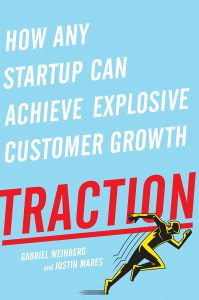
Those are great tips, and it reminds me of when you said the subtitle could be more important than the title. Two books have the same main title. Traction is the name of the book, but then the subtitle is either How Any Startup Can Achieve Explosive Customer Growth, that’s the book by Gabriel Weinberg. And then the other one is Traction: Get A Grip On Your Business. So both of those, I think, are great kind of value-rich subtitles, great promise, but they’re completely different books by different experts. Gino Wickman is writing one, Gabriel Weinberg writing the other. And Gino Wickman, who is also a guest on this show, the creator of EOS, Entrepreneurial Operating System that’s made such a profound difference for so many businesses. It’s kind of like required reading to read that Traction book if you want to implement EOS. Are you familiar with EOS?
Not intimately. I know a little about it.
Okay.
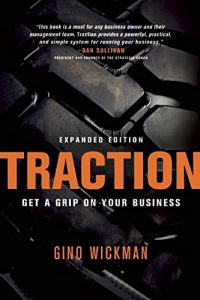
But there are so many great programs out there right now that people need to find what works for them.
Yeah, there are a lot of options.
Yeah, the really good coaches and teachers, they come in with a body of knowledge, Stephan, but then they also work with people one on one on a basis to understand what do they want and need, what are they trying to accomplish. And then it’s our responsibility to help them as best we possibly can, get from where they are to where they want to be. And a coach has got to be pretty savvy to be able to figure those things out because no two people are the same. You can still teach your processes that you know work, but there’s got to be some respect for the individuality of your coaching client.
Yeah. Understandably. So, what would be some of the kind of success stories or case examples that you want to share with our listeners that show the power of coaching? Because I’m a big proponent of coaching. I have a health coach or kind of functional medicine biohacking coach, Sachin Patel. He was a guest on the show. I have a sales coach, I have a general business coach, I’ve had a webinar coach, I just love coaches, and I love getting coached because that helps me upskill, and it helps keep me accountable. It keeps me focused on the bigger vision and the goals and not just get stuck into the weeds. Do you have a few examples of some of your students or clients who have made huge inroads into something or had a big goal from your work together?
Well, I’ve been doing a lot of sales coaching and consulting for quite a while. And I have some companies, and they’ll have me spend one on one time with maybe one salesperson. I like to ask the owner or the sales manager of a company if you got anybody working for you who you feel that their potential is up here, but their current performance is down here. And they say, “Well, I got one particular person who I know got tremendous potential, but I’m having trouble getting it out of him.” Anyway, that’s the kind of challenge I like on a coaching front because I contend that everybody has strengths and weaknesses, but the best coaches do all they can to carefully analyze the strengths and weaknesses of their clients individually. And then we do everything we can to build on their current strengths and simultaneously help them eliminate their weaknesses or manage their weaknesses if they can’t get rid of it in a manner that is not problematic. Because you can have a person of great potential, but if they’re dragging around an invisible ball and chain that weighs 200 pounds, and they’ve got something holding them back, that’s a tragedy.
So what’s an example of that?
An example of that would be, let’s say, a salesperson who has never mastered the very important area of handling rejection. Because salespeople love to be up and they love the great experience of closing a deal, but if they go out and they think they got the greatest product in the world, they give a good presentation, and the individual cost of this is not only no but hell no get out. Some people are emotionally destroyed when they have such an event take place. And if they let it load them down, they creep into self-pity, self-doubt, lack of confidence, their call count decreases, all kinds of mental exercises come into play that is counter-productive to success. I think the mind game, as I like to call it, is critical to somebody in sales, or for that matter, an entrepreneur or someone trying to write a book. We’ve got to maintain our confidence and so forth. I think I told you before the interview, Stephan, I’ve got a success formula. I’d be glad to share it with the members of your podcast if you like.

Yeah.
It’s pretty simple, but it’s profoundly important, and it goes like this; (Vision + Skills + Discipline) x Passion = Outcome. So passion is the force multiplier. Are you truly excited about what you’re doing? Are you determined to overcome any obstacle that gets your way or slows you down? So we’ve got to have that passion, that fire in the belly that keeps us going. Then entails everything from solidifying that vision and doing a very good job of goal setting with intricate details. I can tell there are no unrealistic goals, only unrealistic time frames. We can achieve just about anything given a reasonable timeframe. So these are some of the elements we know we’ve got to have the skills; so we’ve got to continue to research, we’ve got to study, we’ve got to read the books, and we’ve got to go to the seminars and listen to the podcast, we got to do everything we can to get as much benefit on the growth front as we possibly can to add to our skill sets. If someone has a skill that’s right here, but the requirement for success is for that skill to be at this level, they have what we refer to in training and development as a skill gap. And that skill gap can be smaller, it can be large, but it’s critically important. And a good coach can help people get rid of skill gaps. So our outcome is determined by the elements of that little equation, in my opinion. So a lot of it is attitude, determination, those are known as soft skills, but they are the things that give you hard results.
There are so many great programs out there right now that people need to find what works for them.
Yeah. So do you have an example of one of your clients or students who, let’s say they applied your learnings, your teachings, they multiplied that with their passion, got an incredible outcome?
Yeah, in that program, last January, I had a woman who was considering it, and it was a few thousand dollars, so it’s a serious commitment. And she said, “Don, I think I’m gonna wait, I just don’t think I’m ready yet.” So I was compelled to ask her some questions. “Why do you feel that you’re not ready yet?” She didn’t have a good answer. She was just procrastinating than having a solid reason for not getting started. And after about a 10-minute conversation with her, I said, “Why don’t you just go for it? I’m going to help you. I’m going to be coaching you on one. I think we can get there together.” She said, “Okay if you think so.” Well, she’s finished her book now. She is fired up, shot out of a gun, just absolutely turned on to the whole process of writing. She’s already started planning our second book, and she’s also embarking on a speaking career. Her lack of confidence that she had ten months ago has dissipated.
That’s great.
She is now a confident, eager, impassioned professional in her area. And you know, I’d like to think I had to pull a little bit of that out of her, but that’s my job as a coach.
Yeah. Dan Sullivan explains that procrastination is like the lighthouse that points you to exactly the thing you need to be working on the most; the thing that you’re procrastinating the most is probably the thing that you need to do the most.
God won’t ever put somebody in your path as an accident. They’re there for a reason. It’s up to us to devote the time and energy to figuring out what the reason is.
Yeah, I agree with that. Dan’s a great speaker and trainer.
He sure is. Hopefully, I’m gonna have him on the show one of these days. He did say yes, or his team did, and then COVID happened, and then he had to reschedule the interview, and we haven’t gotten him back on.
He’s a fine guy. He’ll do it for you.
Now, let’s talk about your series of books. You got 16 under your belt. Are you working on a 17th?
I’m doing something I’ve never done before. I’m working on three books.
Okay. And at the same time?
Yeah.
Wow.
I used that analogy when Ken Blanchard and I wrote The One Minute Entrepreneur in 2008, we had been good friends for many years, but we became even closer during that writing process. And he told me one day at Blanchard Training & Development, they’ve got all 300 plus employees, and he said, “Don, we’ve got a publishing committee.” And he said, “I want to say yes to every book that comes along. I’m so eager to write and to partner with people.” Ken never writes a book alone. He always co-authors with someone. He said, “I already know everything I know. I want to learn some things from other people.” So that’s kind of his philosophy, but he said, “Don, here’s what we do in our publishing committee.” He said, “If you could picture a cooktop with 12 eyes on it, we’ve got a skillet on every eye, and there’s a book title on it, and we’re on every one of those skillets.” He said, “Every now and then we might take one off the front burner, put it on the back burner, and pull one from the back and put it on the front based on the changing times or responding to market need, or what we feel like we most need to get done.” He said, “We’ve always got a lot of books we’re looking at and talking about.”
The best coaches do all they can to analyze the strengths and weaknesses of their clients carefully. And then, they build on their current strengths and simultaneously help them eliminate or manage their weaknesses. Share on XSo I figured if Blanchard can have 12, I can manage three. So right now, I’m working on a writing book on how to write your book, and I’m also working on a book entitled Chronicles of Optimism, which is my memoirs, talking about the positive influences that I’ve had on me through the years, and kind of a life story. And then I’m working on another book entitled Pivot for Profit, and it’s especially how we need to pivot during the pandemic and dramatically changing times like we are right now. So I’m working on all three of those. I’m enjoying writing all of them. So it kind of depends on the mood I’m in as to which one I’m going to tackle on a given day. But that’s what I’m working on right now. And I’m making progress on all of them. So we’ll get there.
Now. That’s great. How did you end up hooking up with Ken Blanchard to do The One Minute Entrepreneur?
Well, since 1978, I’ve been in a group called Speakers Roundtable, and Ken Blanchard was a member for about 20 years. And he got so busy that he had to drop out, but over that period of time, we became very good friends and had nice mutual respect. He and I also had in common the fact that, did you ever hear of Charlie “Tremendous” Jones, Stephan?
No.
There are no unrealistic goals, only unrealistic time frames. We can achieve just about anything given a reasonable timeframe.Don Hutson
He was an unbelievable motivational speaker and a very strong Christian. He was my spiritual mentor. He was a member of the Speakers Roundtable as well. And he had a similar impact on Ken. So anyway, I had this idea, and sometimes you want to let an idea go, but it won’t let you go. Finally, one day, I said, “All right, I got to call Ken and see what he thinks about this.” And I proposed to him a book, where Charlie “Tremendous” Jones would be the mentor of the book, and he and I would co-author this book. It started as The One Minute Mentor, and about two years into the project, we changed it for various reasons to The One Minute Entrepreneur, but Tremendous Jones was still the hero of the story.
So that’s kind of what got us started with the vision. And Ken moves rather methodically, and we were about three years into the writing project, and it was just a short book, it’s a one minute book, right? Anyway, I said, “Ken, you know, we got this thing almost done. Why don’t we just put our nose to the grindstone, let’s knock it out in the next 60 days?” He said, “Oh, Don, there’s something you haven’t learned yet.” I said, “Really? What’s that kid?” He said, “It’s better to write a good book than a fast book.” And I learned something from that. And it took us about five years, but we got a very nice advance, and we ended up publishing it with Random House, which is now the largest publishing company in the world. And we got a terrific run; we were number-one New York Times Wall Street Journal USA today for five weeks and stayed on the list at a lower ranking for another 12 weeks. So that was a great run. And we sold a lot of those books.
Like how many? How many books did you sell?
Well, over a million. I can’t give you a specific up to date count right now. But it’s done very well, and we still get some nice royalty checks from that one.
Over a million of them. That’s an impressive number.
It’s our responsibility as a Coach to help them as best we possibly can, get from where they are to where they want to be.
Yeah. Well, two years later, my partner at the time, Dr. George Lucas and I, we’re teaching a lot of negotiations. And we wanted to write a book entitled The One Minute Negotiator. So I call Ken, and you know, Ken’s a one minute guy, he’s the one with the one minute manager with Spencer Johnson in the early 80s. So I wanted to invite him to be a co-author with us. And he said, “Well, you know, in our company, we don’t teach negotiations. Why don’t you guys go ahead, and I’ll just write the foreword for you?” So we still had his name on the cover, and that was good. And it was a best seller for several weeks. So we got another good run out of that one.
That’s great.
But I’m very stimulated by the writing process. And I tell you, there’s nothing more of a turn on Stephan than you sitting out the computer, and all of a sudden, it’s almost like the Lord is channeling through you, and you get in what I call you the “propulsion zone.” And I talk about how to overcome writer’s block and increase the probability you’re going to get in the propulsion zone. Because when you get there, you are oblivious to time, your fingers get tired, you’re typing so furiously, and you’re just banging it out. Maybe you plan to write for two hours, and you end up writing four and a half hours in some of your best writing. So that’s a real upper. That’s the kind of thing that keeps the writer going. And we need to try to do all we can to get into that mode as frequently as possible so that we can bang it out. Get it done.

Yeah. Do you have any of the 16 books that you are thinking, Oh, that was not a great book, or that was not well marketed, or I picked the wrong co-author, or something was just tragically wrong about that book?
Oh, every book serves its purpose. I don’t have any big regrets. I will tell you one, I did a book that had 16 people each write a chapter, and I thought my chapter was good. I felt good about it. And I carefully edited, finished up my chapter, and I sent it to the publisher who had their own editor who edited my editing job. And it made several grammatical errors, and I was ready to hurt somebody on that one. Anyway, we caught it all in the reprint, but that was kind of a downer and a regrettable thing to have happened. So always gain all the assurances you can that you’re going to get a final look at your chapter before your names on it. So I learned the lesson there, that’s probably 25 years ago. But those things happen. But really, I don’t have any regrets.
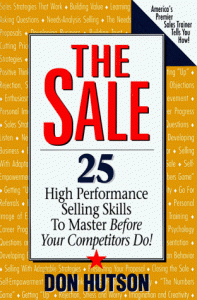
Well, I will say one of the first books I wrote was entitled, The Sale, and it was quite comprehensive, almost 400 pages. It was a pretty sizable book. But it was comprehensive and had some in-depth information about selling skills. And I had a lot of people tell me, and they thought it was the best sales book that was ever written and all that sort of thing. But I started on it in 82, and I finished it in 91. So there’s a message there. Now, the good news is it was comprehensive, it was a little complex, and I had a case study at the end of each of the 25 chapters. And that took more time and energy and effort, but I brought my clients into the fold, and my case studies were about my clients. And maybe a VP of sales said, “Well, I got one salesperson who’s terrific, because she does this, this, this and this.” And we made a case study out of that. Well, that was tremendously time-consuming, but I will tell you all those case studies, one of those bought a thousand books, one of them bought 500, I mean, they bought the book in volume. So ended up, my first printing was pretty much snapped up by the case studies in there, so that’s a takeaway for somebody.
Oh, that was smart. What was the regret that it took so many years to put the book out?
Yeah, it took me years to do it. Now, I was very busy on the speaking circuit. I did about 120 speeches a year for almost 30 years.
Wow.
And that’s a lot. Now, if you’re in one city, and you’re doing everything locally, that’s one thing. But you know, I’d be in Boston one day in LA the next, and I was just all over the place. And I flew about 10 million miles on airliners in probably another eight or 10 million miles in my aircraft through the years, but that’s a lot of miles, but there’s a lot of speaking engagements. But that took away from my writing time. I could do a little bit on the plane from time to time. Every career is a little bit different, and that’s just kind of how mine unfolded. But I still feel like one of the luckiest guys on the planet.
No matter what you give away— your time, your energy, your talent, your money, it’s going to come back in spades. You cannot outgive yourself.
That’s awesome. Yeah, I hit the million mile status with United, and I thought, wow, that’s a lot of time on airplanes that I’m not going to get back in my life.
Yep, and who knows where they’re gonna go from here.
You’re right. Interesting times for sure. Now, I’d love to know about the awards that you got. I know you’ve been inducted into the National Speakers Association Hall of Fame, you’ve gotten the Cavett Award, and so forth. Was there something that you did to let the committee know that you were interested? Did you have to apply for these awards? How does this all work? Because it is impressive to have various awards, but it just doesn’t happen on its own, typically, right?
Well, it’s not something that just happens. I learned something from another of my mentors, Cavett Robert, who was the founder of the National Speakers Association. Stephan, he used to say, “It is a virtual impossibility, you cannot outgive yourself.” And people say, “We’ll elaborate on that Cavett.” He says, “Well, no matter what you give away, your time, your energy, your talent, your money, whatever you give away, it’s going to come back in spades. You cannot outgive yourself.” And I tried to be an unselfish professional through the years and give back. So I was convention chair a couple of times for NSA, and I was on the board for two different occasions for several years each. I just kept on going to the meetings and speaking at most of them and playing some kind of role that could be helpful to the association. And it helped me along the way, but I got so much out of it because I learned so much, but also tried to give back.
(Vision + skills + discipline) x passion = outcome Share on XI think Cavett was right. You can’t outgive yourself. So people have seen fit to give me some recognition here and there. The Cabot Award is what’s called the Member of the Year Award. But it’s more of a cumulative thing of what you’ve done over a period of years for the association. And then I got that back in 86, and then in the last decade, or so I got the Master of Influence Award. I think that’s kind of a here’s somebody who’s been doing some pretty strong things for many, many years, and they give it to people who they feel like have earned that particular award. And I was most appreciative of that. The Philanthropist Award was, yes, I’ve given back my time, and I’ve given some money and my expertise. And there are a lot of ways to give; money is just one of them, but giving up your talent is another thing. And I mentioned in my acceptance remarks, and I’d been president of the International Children’s Hearts Foundation, based here in Memphis, Tennessee, for ten years.

Over that period of time, I gave them money, but I shared all the board meetings, and I gave back a lot of time and energy because we’re saving babies’ lives that are going to die without one of our surgeons going in to do this open-heart surgery on a three-day-old baby or something. It’s just amazing what was happening. A surgery that would cost $75,000 in America back then cost, if you were doing it in Melrose, it might have been 1700 bucks is what it cost us to be able to provide the talent and pay for travel for the docs and the crew, and the supplies and everything. We got a lot of things donated to us. And it is a wonderful charity. But I’ve never talked about that very much. People said, “I never knew you were into that, don.” Well, you don’t have to talk about it. Just do it. And if you feel good that you do it, but it’s a way of giving.
Yeah. How did you end up doing that? Like how did you find that opportunity and kinda seize it?
Well, we lived in a development in Downtown Memphis overlooking the Mississippi River, and right across the street, our neighbors were Dr. Bill Novick and his wife, Elizabeth, and he was the key doc of this group. And we have them over for dinner one night, and we’re talking he said, “Our only limitation is we just need to raise more money so we can save more kids’ lives.” Well, that struck a chord with me, and Terry and I both made a time commitment and a monetary commitment to him and went to work on it as a very rewarding thing for several years.
Amazing. And there are no coincidences. Serendipity is, that’s the universe, that’s the Creator who is lining things up for you.
I don’t think God ever put somebody in your path as an accident. They’re there for a reason. It’s up to us to devote the time and energy to figuring out what the reason is.
So did you get goosebumps when you had that conversation? That first time with that doctor?
I think I did.
Yeah. Because goosebumps don’t lie, as you said.
That’s right, man. There’s a message there, too.
There are no unrealistic goals, just unrealistic time frames. Share on XThat’s right. How did you come up with that? Was that your statement, or did you learn that from a mentor or coach?
Well, I got it out of a book somewhere. And I can’t even tell you who wrote it, two, three or four years ago, but I just remembered it resonated with me when I read that. I thought, “You know what, that is exactly right.” And I’ll get more specific on the example of how I got into the business, Stephan. When I went to Dick Gardner seminar, the second speaker was Dr. Kenneth McFarland, he was known as the Dean of American speakers. And I gotta tell you, and I got chills like six times during his speech. He was unbelievable. I believe to this day, and that was a half-century ago, I believe to this day that he is the greatest speaker of all times. Now, would everybody agree with me? No. But boy, every time I heard him, he got under my skin in a positive way. It just made me want to be more of a substantive person in the career I’ve chosen. How can I get better, be better, do better, help more people, and that sort of thing? So he was a powerful inspiration to me. And I’m getting a few tingles right now just talking about it.
But I’ll be forever indebted to Dr. Mac, as I called him; we became very close friends. I remember the first time I tried to recruit him into the National Speakers Association. He was kind of a, I’m not gonna call him a lone wolf, he had a lot of people who he was close to, and he cared about and everything. And we became very close friends. But I remember the first time I asked him to join NSA, and he turned me down. He said, “Don, you know, I’m so busy, and I’m just kind of out there doing my own thing. And I really just don’t have time, and I hope you’ll respect that.” So I laid off him for a couple of years.
Figure out who your literary mentors are, and then read voraciously everything they’ve written because leaders are readers.Don Hutson
And then I asked him again, and he said, “Don, you know, I just don’t need it. I’m just so busy.” I said, “Dr. Mac, you don’t need it, but we need you. We need your influence. We need more people in the National Speakers Association, to engender some of the skills and the passion that you’ve got that have made you such a positive influence on so many people.” And he took a cigar out of his mouth, he stared at me, he said, “You think so, huh?” and I said, “Yes, sir. I do.” He said, “Okay, well, if you think so, I’ll join.” So he joined, and then we got him to do the keynote speech at the next convention. He just blew everybody away. He was so fantastic. He did an album with Nightingale -Conant a few years later, and I think they still sell it. And anybody who’s never heard Dr. Kenneth McFarland, go to nightingaleconant.com, and I bet you still get it.
Yeah, well, you can also get some of those Nightingale-Conant albums through Audible, and Apple has their iBook so you can download the book, so you can get them oftentimes cheaper than from the Nightingale-Conant website.
Yeah. Okay.
So speaking of programs like that, you have some programs. I’d love for you to share what you’ve got and how our listener can take advantage of this special offer that you’ve put together the bundle.
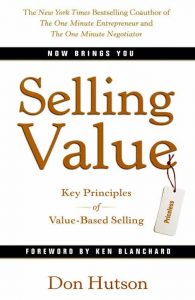
Okay, well, yeah, I’ve told you, I’d be happy to do that. We’ve got what we call the Sales Excelerator. That’s an 80-minute video on sales excellence, and it covers many key subtopics that can take people to the next level in the sales process. And Sales Excelerator, I spell Sales Excelerator as excelerator, so it’s a weird spelling. But anyway, we put together a special where for $99, you get the Sales Excelerator, it’s 80 minutes, almost an hour and a half. And also copies of five of my books, Selling Value, The Sale, Standing Out From the Crowd, which is the differentiation book, and The One Minute Entrepreneur that I mentioned earlier with Dr. Blanchard, and then a copy of the Selling with Style, which deals with the behavioral styles and how to sell different people differently. So anyway, you get all five of the books, and the books are worth more than 99 bucks. But anyway, the Sales Excelerator 80-minute video is normally $297. So it’s a nice value, and people can email me at Do*@*******on.com, and I’ll respond to them, they can put it on a credit card, we’ll send it out today.
That’s great. Well, thank you so much, Don, if there was something that you wanted our listeners to take away and implement, something that we haven’t discussed yet, but it’s just so impactful, so life-changing that if this is the only thing they remember from this particular episode, it will shine a bright light in the world, what would that be?
I just happened to have a gym for you in that respect.
Okay, great.

Figure out who your literary mentors are. Maybe you only got one, but one of my literary mentors, numero uno, is Orison Swett Marden. This is one of his books. He wrote 42 books from 1893 to 1925. He is, in my estimation, the greatest self-help writer who has ever lived. His name again is Orison Swett Marden. And he’s got titles like The Victorious Attitude, Every Man a King, You Can, But Will You?, Iron Will, The Secret of Achievement. Anyway, they go on and on. Every one of his books can be a life-changer. They’re just terrific. I’ve read all of them, and now I’m rereading them. So I’ve got what I’m working on here right now. So figure out who your literary mentors are like Martin is for me, and read everything they’ve written. Most people haven’t written 42 books like Napoleon Hill is another one, but I think he wrote maybe 12 or 15 books, but they’re wonderful. The Law of Success, The Think and Grow Rich, and there’s so many other wonderful self-help writers and others who might be your literary mentor.
The “Drift” that’s another one, or the Outwitting the Devil, and then he talks about the “drift” in the book.
Yeah.
Yeah. Powerful concept.
Yep. So figuring out who your literary mentors are, and then read voraciously everything they’ve written, because leaders are readers. And whether it’s on a Kindle or whether you’re like me, and you like hard copies, just keep on reading, reading, reading, and then you’ll be a better writer, you’ll be a better speaker because you’ll be smarter.
Awesome. Well, that was great advice. And thank you so much for sharing your brilliance and all your wealth of experience and knowledge with our audience. And again, your email address is Do*@*******on.com, and your website is donhutson.com.
Donhutson.com. Yep.
All right. Thank you, Don.
Thank you, Stephan.
Thank you, listeners, we’ll catch you on the next episode, have a great week.

